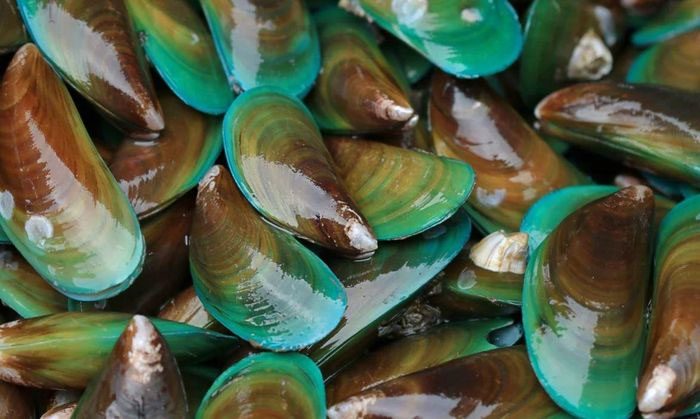Green mussels, creatures the size of a palm, are found in oceans around the world.
However, for marine biologists, this bivalve mollusk is also a “silent hero.”
In addition to providing habitat for various organisms that attach to them, mussels filter a significant amount of water during their feeding process, helping to remove pollutants from their living waters.
Without them, water quality would decline, putting many other plant and animal species at risk.

Green mussels can withstand warmer water temperatures. (Photo: Shutterstock).
Given their crucial role in marine ecosystems, green mussels have garnered research interest from biologists, especially as our planet warms.
According to a recent study on marine organisms in Hong Kong, scientists discovered that mussels can recover after each heatwave by adjusting their heart rate and bodily functions, improving their survival chances in a warming Earth.
“They exhibit good endurance and resilience after exposure to high temperatures by adjusting physiological processes,” the research team at the Chinese University of Hong Kong (CUHK) wrote in the journal Marine Biology.
The study found that the Asian green mussel is abundant and widely distributed across the Indian and Pacific Oceans. This region is also predicted to experience the most significant surge in marine heatwaves in the coming decades compared to other latitudes.
The research team noted that understanding how animals respond and recover from stressors can help scientists better predict the impacts of climate change.
The lead author of the study, Laura Falkenberg, stated that their experiments show that green mussels in Hong Kong can cope with marine heatwaves.
To conduct the study, the scientists collected green mussels of various sizes during low tide at Tolo Harbor early last year.
After placing them in a tank, the researchers simulated a heatwave by raising the tank temperature by about 3 degrees Celsius, from the average summer temperature to 30 degrees Celsius, which is warmer than usual.
Following a three-week artificial heatwave, the research team attached sensors to the mussels’ hard shells to measure the electromagnetic waves generated by their heartbeats.
They observed an increase in the heart rate of the mussels. However, in larger specimens, approximately 5 cm long, there was also a significant increase in water filtration rate.
Next, they underwent a week of recovery at normal temperatures. Their physiological characteristics, such as heart rate, temperature, and filtration rate, returned to normal levels. The results indicate that the long-term functions of mussels were not affected by the heat.
According to the researchers, adjusting heart rate and filtration rate may be the primary responses of mussels to regulate their body temperature.
However, some coastal animals, such as oysters, sea snails, and starfish, may not recover from extreme heatwaves.
Falkenberg noted that in the future, her team may focus on green mussels in other parts of the world, as well as how other species may respond to such heatwaves.
She remarked, “Heatwaves will last longer, be hotter, and occur more frequently in the future.”


















































